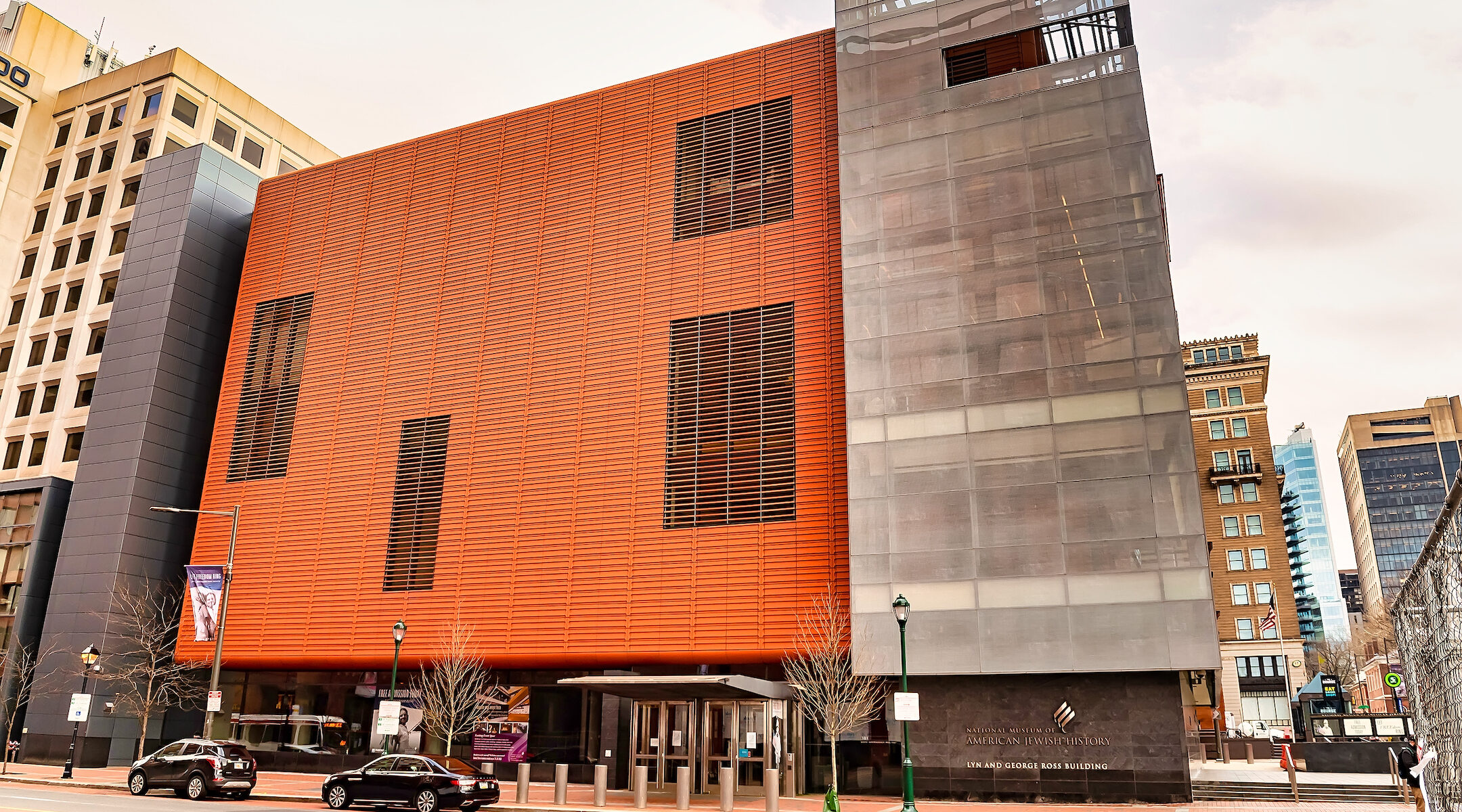(JTA) — The most prominent American Jewish history museum is extending a free admission program that began when it reopened following the pandemic.
The elimination of ticket fees through at least the end of 2023 reflects a vote of confidence in Philadelphia’s Weitzman National Museum of American Jewish History, which was fighting to survive three years ago. Confronting a construction debt of $30 million, it declared bankruptcy right as COVID-19 hit and shuttered cultural institutions worldwide.
The Smithsonian-affiliated museum, located near historical landmarks such as Independence Hall, received a large donation from shoe designer Stuart Weitzman the following year. That gift allowed it to buy back its building and provided it with an eight-figure endowment (and a new name). When it reopened in May 2022, a $500,000 grant from the Jane and Daniel Och Family Foundation enabled the museum to provide free admission.
Now, a followup grant of $300,000 from the same foundation, plus a $200,000 donation from the Sofia and Mikhail Segal Foundation, will continue the policy.
The museum first experimented with free admission during the summer of 2019, and the museum found that the policy increased the number of visitors by 37%. A set of 500 exit interviews the museum conducted with visitors also found the vast majority of visitors that season were not Jewish. During the rest of the year, when admission was not free, the museum said that 75% of museum goers did identify as Jewish.
This year, the museum says its attendance numbers are rising, though they aren’t yet at pre-pandemic levels. In May and June 2023, more than 6,600 people visited the museum, as opposed to 3,700 from the museum’s reopening date of May 13 to the end of June in 2022. In May and June of 2019, the museum attracted 8,000 visitors.
Misha Galperin, the museum’s president and CEO, said in a statement that the free admission policy aims to combat prejudice. Galperin is on the board of governors of the Combat Antisemitism Movement and consulted on the White House strategy to combat antisemitism — which recommends education in museums as a tool to combat anti-Jewish bigotry.
“This is how we cultivate empathy and promote civil discourse,” he said. “We create tangible connections with stories of real Jews and this work provides an antidote to antisemitism.”
JTA has documented Jewish history in real-time for over a century. Keep our journalism strong by joining us in supporting independent, award-winning reporting.






